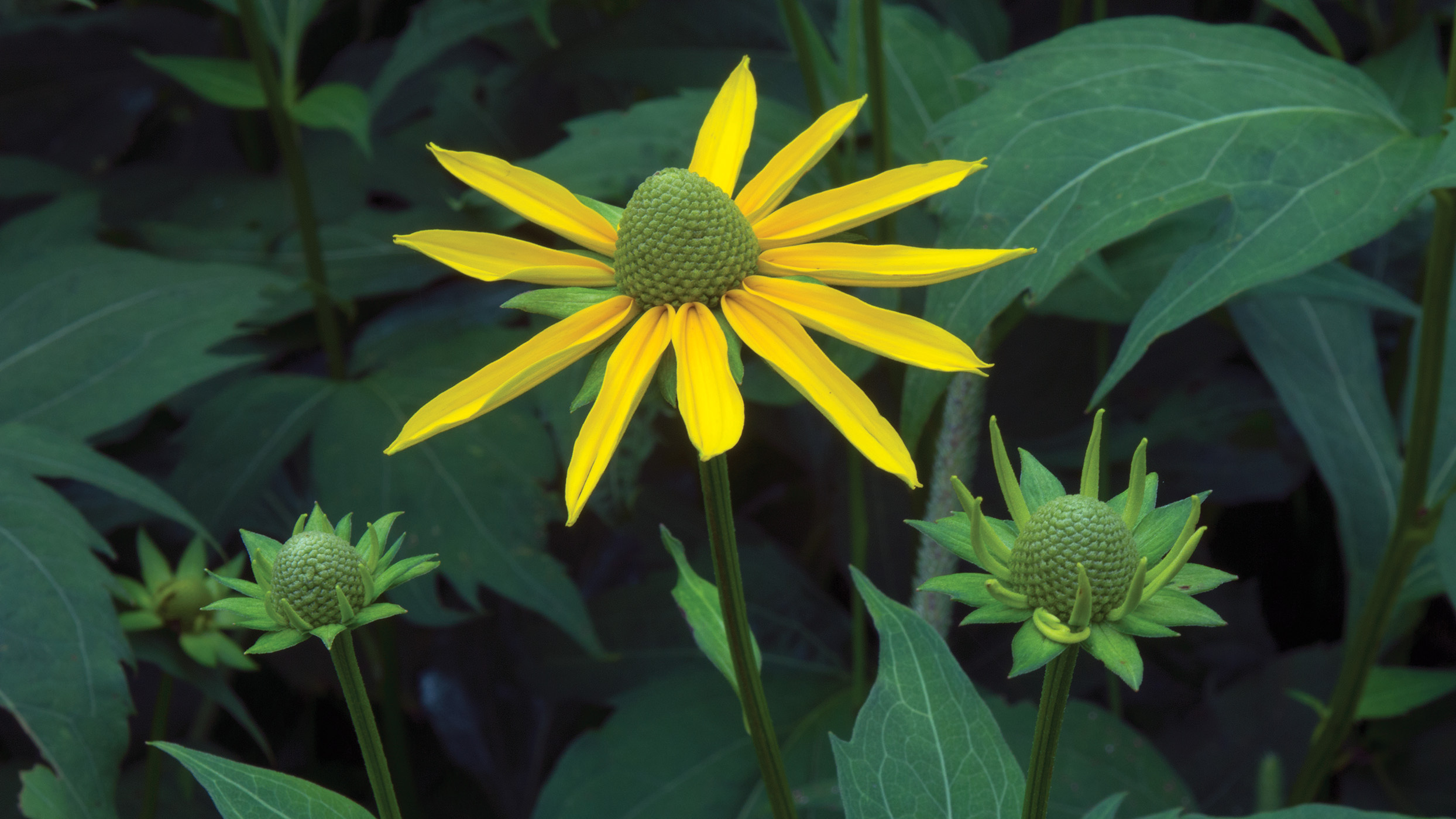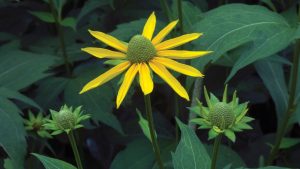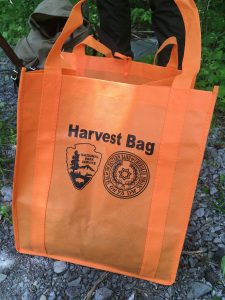
While the word “harvest” usually brings autumn to mind, spring is the time of year for harvesting sochan. Also known as green-headed coneflower, sochan plays an important role in the cultural heritage of the Eastern Band of Cherokee Indians, who gathered food and medicine directly from the land in the Great Smoky Mountains long before there was a national park here.

“Coming out of winter each year, we have a thriving community that looks forward to harvesting some of the botanical consumables coming up like ramps and sochan,” says Tommy Cabe, Forest Resource Specialist with the Eastern Band. “Historically, we probably ate a lot of dried fish and meat through the winter months and moved back to a more vegetarian diet during the spring.”
Heading into to the mountains to gather sochan (Rudbeckia laciniata) is a family tradition considered by some to be sacred. The plant’s young leaves are rich in Vitamin A, iron, calcium, and potassium, and the tall, late-summer-blooming wildflower is common along streams and wet areas throughout the park.
Cabe is especially enthusiastic about harvesting this spring because it’s the third year that his community has been able to come into Great Smoky Mountains National Park and gather sochan. The arrangement began in 2019 when Great Smoky Mountains National Park negotiated an agreement with the Tribe for annual sochan gathering during the months of March, April, and May. The agreement was the result of a National Park Service decision three years prior, in 2016, to recognize and honor the historical ties and cultural knowledge that many Native American groups continue to hold with respect to public lands by allowing the gathering of plants or plant parts for traditional purposes by federally recognized Indian Tribes.
“To get a better grasp of what these traditional foods mean for our DNA and our cellular structure,” Cabe explains, “we ran some nutritional panels on them and found that some of these foods are equally good or better for you than some of the current organic produce available to our members. So that justified the relationship with some of these resources on a scientific level.”

This is the first season that all 36 harvester slots are filled. Josh Albritton, the NPS Biological Science Technician who manages the program for the park, is really excited about this high level of participation.
“The relationship between the Cherokee and this land goes back thousands of years, way back before Great Smoky Mountains National Park ever existed, and now we have this chunk of land that is protected,” he says. “Ours is one of the first agreements of its kind in the eastern U.S. and one of the first in the national park system. To help garner this relationship that allows the Cherokee Indians to continue to uphold their cultural values is of utmost importance.”
Cabe says the gathering program is a landmark effort for the two governments—U.S. and Tribal—to find common ground and “it demonstrates that indigenous people are still here.” He adds that environmental shifts related to climate change make it more important than ever to continue to foster and maintain ancient relationships with the landscape.
“Some of our stories about these plants and how we use them still exist in our culture, and they’re still important to us from a health standpoint,” he says. “This agreement gives us an opportunity to revisit our relationship with the federal government and share some of this knowledge—because we feel like it’s actually being heard now. To work together in a scientific environment to justify the way that we engage with these plant species is more than just a give-and-take, but a holistic conscious effort that will benefit future generations.”
With the exception of harvesting permits such as the ones provided by the sochan agreement, federal law protects almost everything in national parks, including wildlife, plants, historic objects, and even rocks. Other exceptions include game fish (with catch limits) and berries, nuts, and edible mushrooms (for personal consumption only).
The Great Smokies Welcome Center is located on U.S. 321 in Townsend, TN, 2 miles from the west entrance to Great Smoky Mountains National Park. Visitors can get information about things to see and do in and around the national park and shop from a wide selection of books, gifts, and other Smokies merchandise. Daily, weekly, and annual parking tags for the national park are also available.